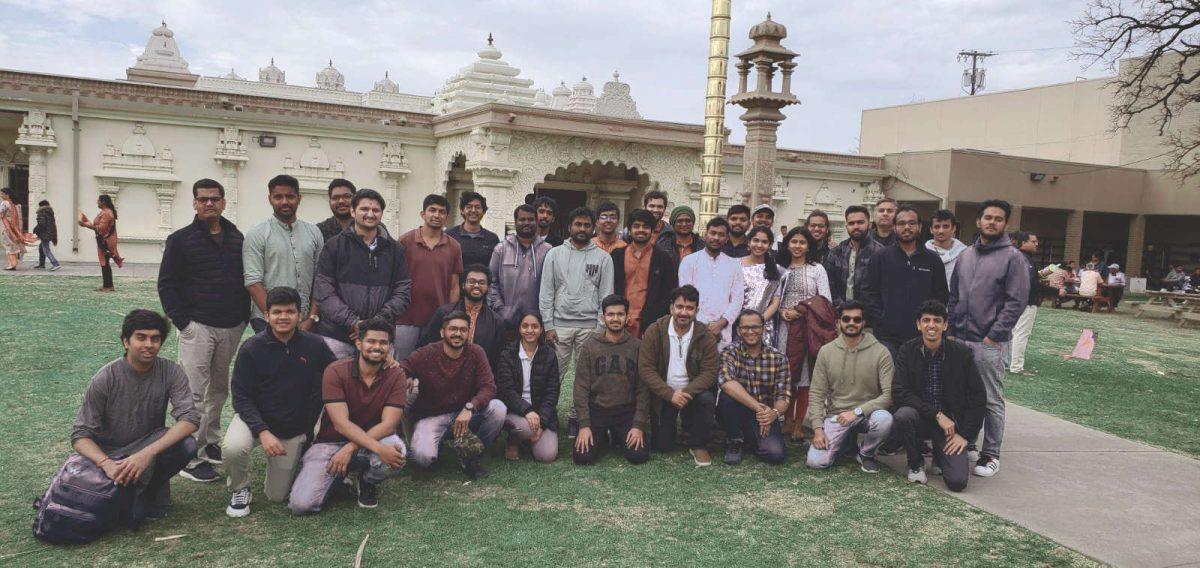The group Hindu Yuva at UTD celebrated Makar Sankranti at the DFW Hindu Temple on Jan. 15 to commemorate the start of a new season.
Makar Sankranti is a festival celebrated across India that illustrates solidarity in diversity. Each state has different ways of observing Makar Sankranti; however, harvest is the factor that brings them all together.
In Hindu scripture, Sankranti represents the movement of the sun from one Rashi — or constellation of the zodiac — to the next, meaning there are 12 Sankranti in a year. Out of the 12, the Makar Sankranti is considered the most auspicious and is one of the few Hindu festivals aligned with the solar cycle. Makar Sankranti’s importance isn’t just limited to its religious significance. The festival also marks the beginning of the harvest season, when new crops are worshipped and shared with delight. It is a celebration of the changing of seasons and welcomes positivity and good intentions.
“We took [students] from UTD to the temple … and then we had some chai and snacks,” Saket Puri, president of Hindu Yuva and political science graduate student, said. “There was a puja [worship of the Lord] that happened, sun salutations were done for an hour, kite flying and then there was prasad [food] that was distributed.”
The puja and sun salutations are vital parts of the festival, as Makar Sankranti revolves around the sun god and the beginning of the harvest season for farmers. The priest conducted the puja as the devotees listened in peace. Similarly, sun salutations are used to respect and honor the sun. In Indian culture, the sun is regarded as the source of all life and therefore holds great importance.
“People who cultivate their land will harvest the products they grow and offer them to the Lord and celebrate the new season,” Shashanka Ranade, a member of Hindu Yuva and information technology management graduate student, said.
Hindu Yuva is particularly impactful for many international students navigating Indian and American cultures. Ranade said that for most international students, celebrations look very different as they are far from their families. However, they enjoyed spending the holiday with a traditional meal and time with friends and classmates.
“I feel like [in the past] this was more of like a household event … but I feel like over time people have gathered more,” Puri said, “And we tried to celebrate with the larger community, trying to bring people together whenever we can.”
Hindu Yuva’s purpose is to preserve and promote Hindu culture on campus. The organization strives to unite like-minded people and celebrate various religious holidays as a community. Puri said there is a gap between students and their affiliated religions on campus. He said that there are other Indian organizations, but the Hindu aspect is lost. Hindu Yuva’s mission is to guide students back to their roots and bring the community together by promoting Hinduism.
Hindu Yuva is looking to expand its events throughout the year, hoping for more student turnout and appreciation.







